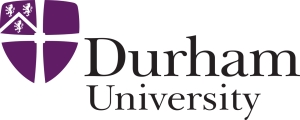
- This event has passed.
Methodological Approaches for ‘Ambivalent’ Research
15th November 2018 @ 4:00 pm - 16th November 2018 @ 6:00 pm

Methodological Approaches for ‘Ambivalent’ research
15th November 2018, 16:00 to 16th November 2018, 17:00, College of St. Hild and St. Bede, Durham University, Professor Genevieve LeBaron (University of Sheffield)
A two day event : Methodological Approaches for ‘Ambivalent’ research will take place at the College of St. Hild and St. Bede, Durham University on 15th and 16th November 2018. The event is free to attend and is part of the project: An Abolitionist Industrial Complex: Patterns of anti-trafficking/ anti-slavery policy and practice in the 21st Century sponsored by Durham University’s Institute of Advanced Study.
This interdisciplinary seminar is organised around the theme of methodological approaches for ‘ambivalent’ research and will consider specific methods and tools along with broader questions about ethics and epistemologies. The event will cover a broad range of topics and should be of interest to researchers in a variety of fields for whom the methodological issue of ambivalence has arisen or is expected to arise.
The event begins with a keynote (sponsored by the Global Policy Institute) from Professor Genevieve LeBaron (Politics, University of Sheffield) on Thursday 15th November (from 4 to 5.30pm). Professor Genevieve LeBaron will present findings from her recently completed ESRC funded research on the business of forced labour in global supply chains.
Following this there will be day-long seminar on Friday 16th November with contributions from:
Ayushman Bhagat (Geography, Durham University) whose current research examines mobilities and migration of participants from a ‘trafficking-prone’ and ‘post-disaster’ region in Nepal;
Prof. Nick Crossley (Sociology, Manchester; Mitchell Centre for Social Network Analysis), who has researched covert (e.g., criminal, terrorist, or otherwise secret) networks;
Dr. Niall Cunningham (Geography, Durham University) who has used Geographic Information Systems to study political conflict in Belfast during the Troubles;
Dr Anna Hedlund-tbc (Danish Institute Against Torture- DIGNITY) who conducted an in-depth ethnographic study of armed groups in the Eastern Congo (DRC);
Dr Alison Jobe (Sociology, Durham University) who has conducted research on UK asylum determinations and legal interpretations of Human Trafficking;
Dr. Gwyneth Lonergan (Sociological Studies, University of Sheffield) whose current research involves analysis of documents produced by, and interviews with employees of, faith- based organisations involved in anti-trafficking work;
Professor Nicola Mai (Sociology and Migration Studies, Kingston University) who has produced ethnographic films to challenge representations of the encounter between migration and sex work;
Dr Siobhan Mcgrath (Geography, Durham University) whose past research included interviewing employers accused of perpetrating ‘slave labour’ in Brazil;
Dr Jesse Proudfoot (Geography, Durham University) whose research examines drug use and addiction through ethnographic fieldwork and in-depth interviews with drug users.
Following the day long seminar on Friday 16th November, participants are invited to an evening buffet reception at 5pm.
Please specify when registering which days of the seminar you will be attending.and if you will be joining the buffet reception.
To register for the event please visit the Eventbrite page at:
https://www.eventbrite.co.uk/e/methodological-approaches-for-ambivalent-research-registration-48589784353
Contact [email protected]; [email protected] for more information about this event.
